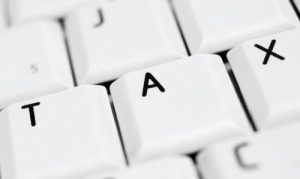A new study by IFF Research for HMRC has looked into how mid-sized businesses go about tax compliance and tax planning. Whilst the businesses interviewed described their approach to tax as somewhere on the spectrum from more reactive to more proactive, almost every business relied on an Accountant or tax specialist. The reason given was that as a mid-sized business they didn’t have the right tax expertise in-house and needed support with strategy and planning as well as one-off queries to remain tax efficient. Here we look at some of the pro-active ways these businesses manage down their tax liabilities and the tax questions that Accountants can answer to ensure compliance with the law.
About the study
One-to-one interviews were conducted with forty companies and participants’ jobs included Finance Director; Financial Controller; Finance Manager; Head of Tax; and Chief Financial Officer. While mid-sized in HMRC terms means businesses over £10 million and/or more than 20 employees, for this study the focus was on larger mid-sized businesses with revenue over £50 million since their complexity means a formalised tax strategy is more likely.

Tax compliance and tax planning
Tax planning wasn’t a priority across the board, with the approach explained by some as “tax following the business”, which meant that business decisions are taken first and then the tax implications are considered afterwards. Interviewees were all careful to stress that they want to pay the tax they owe and be fully compliant with the law.
Reactive businesses don’t see tax as an area to manage. Instead they want to pay what they owe and comply with the rules, including changes in the law once they have happened.
Where businesses report that they are proactive, they work with Accountants and tax specialists to improve tax efficiency. This includes automating tax compliance, having a future view of likely regulation changes and reducing tax liabilities to increase profit. Tax is viewed as another cost for the business, to be managed as with other costs.
Proactive ways of cutting the tax bill
Amongst the steps which proactive businesses take to minimise their tax liability one or more interviewees stated that they try to:
- Identify allowances that they are eligible for including capital allowances and Research and Development allowances.
- For one organisation a move into a new sector offering R&D allowances triggered a renewed focus on claiming R&D allowances wherever eligible.
- Notably, businesses not currently in profit mentioned that capital allowances help them to be more tax efficient.
- Find areas of spending that they can deduct VAT payments from.
- Use transfer pricing to manage risk and correctly attribute profit between group companies, which then also enables them to be more tax efficient.
- Plan to relocate to a deprived area in order to benefit from tax breaks
- Use group reliefs to offset any loss-making businesses or those businesses that are winding down to reduce the tax paid by profit-making businesses. Group Payment Arrangements (joint payment of corporation tax) were cited as a means to reduce the administrative burden of paying tax as a group and to reduce the overall amount paid.
- Refocus spending into areas that are tax deductible. For example, marketing budget spent on trade advertising was cut whilst spend on hospitality was increased.
Whilst this is not an exhaustive list of how tax liabilities can be managed, it does illustrate the wide range of potential options.
How mid-sized businesses use Accountants
The study found that almost all these businesses use agents – Accountants and tax specialists – for tax planning and advice on their tax strategy, with many providing ongoing consultancy focused on compliance and answering one-off queries. All the businesses interviewed used their agents for some level of auditing and many had agents do their Corporation Tax computations.
Important questions that need a tax expert
This study showed that Accountants and tax experts currently help mid-sized businesses with a wide range of queries on tax topics, including:
- A huge number of VAT queries including questions about how certain costs should be categorised in VAT returns, and especially VAT along with international tax. For example, businesses seek advice on Triangulation when buying in one country then selling in another.
- Company acquisitions including due diligence on businesses they plan to purchase and advice on transfer pricing.
- The best structure, set-up and timing when setting up a new business.
- Deciding which country to locate a business subsidiary.
- Tax implications of a proposed Joint Venture Agreement.
- Discovering potential tax reliefs available.
- International tax queries such as the correct payment of Withholding Tax, as well as more logistical issues such as getting access to overseas tax systems or portals.
- Gambling considerations when setting up a new arm of a sporting business.
- Whether ex-gratia payments to reward employees for exam success could be made tax-free.
- Questions about tax calculations and submitting tax returns. In particular, Corporation Tax was seen as complex and requiring expert knowledge, for example to follow the correct protocol when offsetting profits against losses.
- Information on how to deal with changes in legislation in the future.
At HB Accountants we provide a tax planning service for greater tax efficiency, as well as tax compliance help, to mid-sized and small businesses. You can contact me, that’s Amy Armitage, on 01992 444466 or email amy@hbaccountants.co.uk and I’ll be able to provide information and advice.

